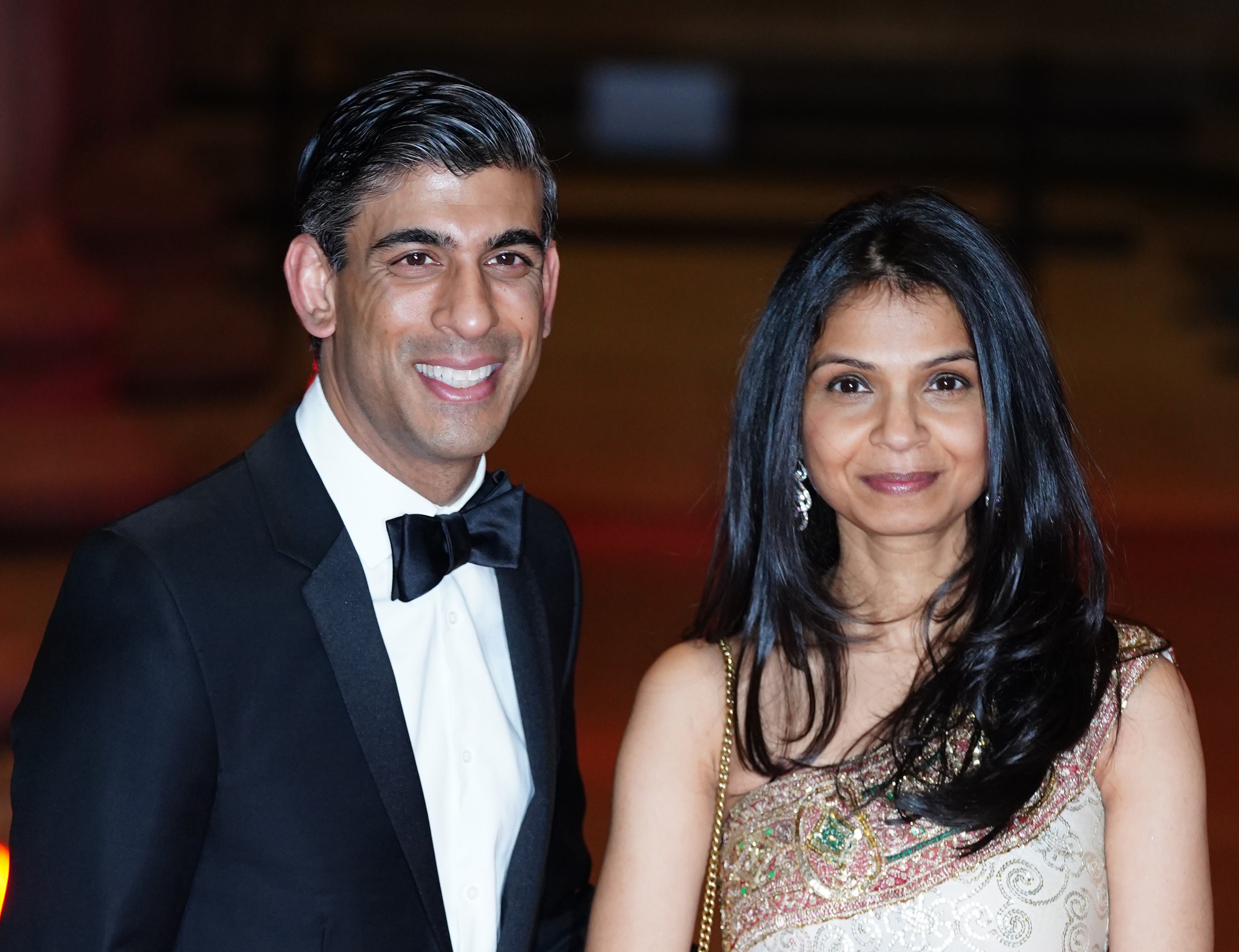I’m of Indian heritage like Rishi Sunak’s wife – but I didn’t need to be a non-dom taxpayer
I wasn’t registered as a non-dom, and yet I maintained my ties to India and my Indian passport. It is possible for Rishi Sunak’s wife Akshata Murty do the same.


Your support helps us to tell the story
From reproductive rights to climate change to Big Tech, The Independent is on the ground when the story is developing. Whether it's investigating the financials of Elon Musk's pro-Trump PAC or producing our latest documentary, 'The A Word', which shines a light on the American women fighting for reproductive rights, we know how important it is to parse out the facts from the messaging.
At such a critical moment in US history, we need reporters on the ground. Your donation allows us to keep sending journalists to speak to both sides of the story.
The Independent is trusted by Americans across the entire political spectrum. And unlike many other quality news outlets, we choose not to lock Americans out of our reporting and analysis with paywalls. We believe quality journalism should be available to everyone, paid for by those who can afford it.
Your support makes all the difference.The controversy around Rishi Sunak and his wife’s finances raises interesting questions about home, identity and belonging. And, about who has the privilege to hold on to an Indian passport and claim non-domicile status despite having lived in this country for more than a decade.
This morning, chancellor Rishi Sunak defended his wife’s non-dom status by saying: “Her family home is in India, she obviously has a very close connection. It wouldn’t be reasonable or fair to ask her to sever ties with her country because she happens to be married to me. She loves her country. Like I love mine, I would never dream of giving up my British citizenship. And I imagine most people wouldn’t.”
While I do not claim to understand all the rules around non-domicile status, I was not aware of this when I first moved to the UK. I paid all my taxes diligently. I paid taxes even when I was barely making enough to live as a single parent, with no recourse to any childcare support.
I wasn’t registered as a non-dom, and yet I maintained my ties to India and my Indian passport. I believe it is possible for Sunak’s wife Akshata Murty do the same.
I came from India in 2000 to study for a master’s degree and then a PhD. I have lived in the UK since. I held my Indian passport for more than 14 years until it became untenable to travel and work globally with one. I would have to spend hundreds and fill up many forms and queue for a visa every time I had to travel anywhere outside the UK. I had no resort to any kind of public funding or support on an Indian passport.
I love India and have strong roots and connections there. My parents (well, my mum since my dad died in 2020) still live there. I consider it home, as much as I consider the UK home where I have lived for 20 years, and where my children and my husband were born. Much like Akshata Murty.
Yes, I grieved the loss of my Indian passport, because India and UK do not allow for dual citizenship. But my connection to my home country has nothing to do with the passport that I hold. I have nothing against Murty, and in fact until yesterday I had not given her any thought, or known anything about her.
But as the news about her non-domicile status and possible tax evasion broke out, I despaired.
Many first-generation immigrants, like me, have worked extremely hard to acculturate and assimilate in this country dealing with microaggressions in our work and social lives. And I despair that news like this highlights and reinforces some of the negative perceptions of immigrants, and by association tars those who aren’t in the same league as multi-millionaires such as Murty.
To keep up to speed with all the latest opinions and comment, sign up to our free weekly Voices Dispatches newsletter by clicking here
Unlike Murty, I did not have the luxury and financial resources to travel around freely – nor did I have a US green card. Being stopped at every passport control, scrutinised at every border, sometimes kept waiting for four hours takes its toll. I don’t know Murty’s specific circumstances, but if I had to guess, I would say that she has not encountered this with her position of privilege and her connection to one of the richest families in India. That undoubtedly comes with political connections and leverage.
Not all of us are evading taxes, or finding loopholes in the system to try and avoid doing so. And I worry how this would reflect on other people from India, whether they would be viewed suspiciously too.
It makes me angry on behalf of all the people living by the rules, avoiding any missteps so that they don’t get penalised for being an immigrant.
Dr Pragya Agarwal is a behaviour and data scientist and visiting professor of social inequities and injustice at Loughborough University
Join our commenting forum
Join thought-provoking conversations, follow other Independent readers and see their replies
Comments